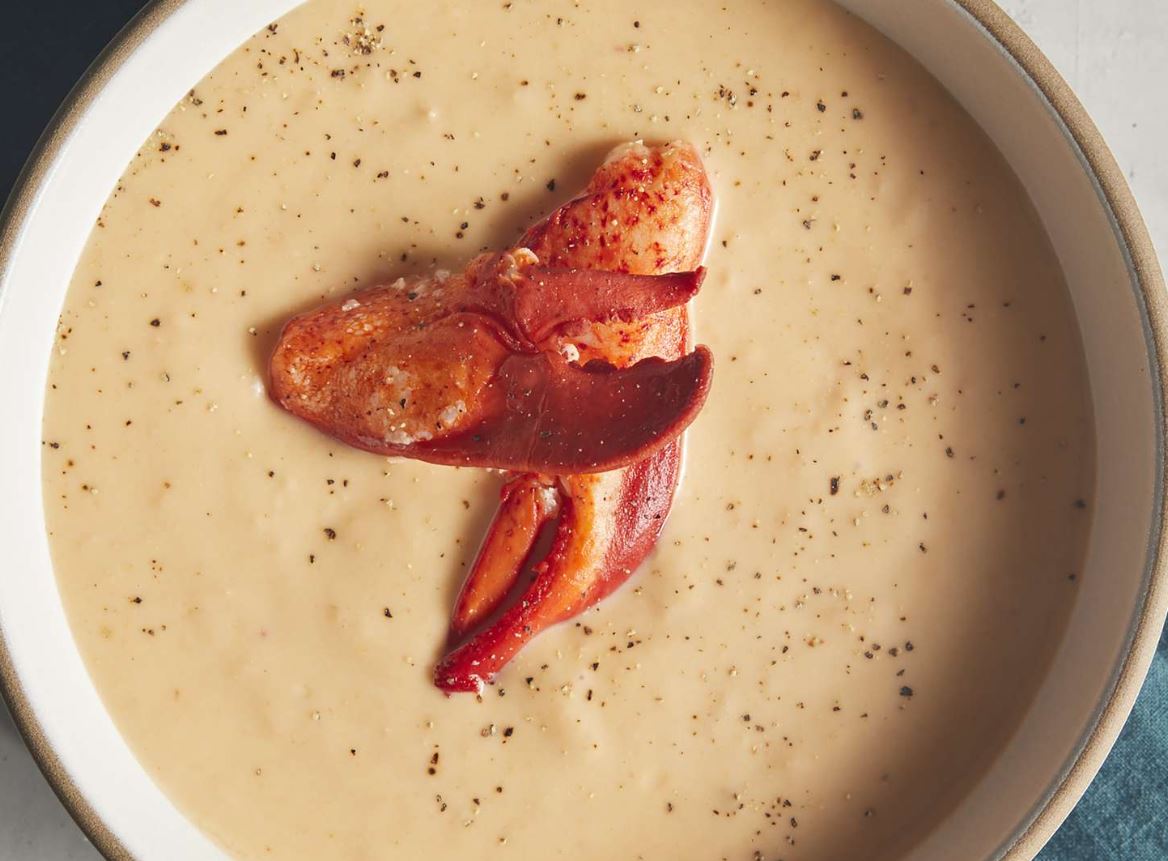Lobster bisque is a luxurious, creamy soup that’s beloved for its rich texture and indulgent flavor. Traditionally, this dish is made using lobster, cream, and sometimes wine or sherry to enhance its depth. But if you’re following a gluten-free diet, you might be wondering Is Lobster Bisque Gluten Free or not.
Table of Contents
Is Lobster Bisque Gluten Free?
Lobster bisque, in its traditional form, often includes flour as a thickener. This addition means that not all versions of lobster bisque are gluten-free. Flour contains gluten, a protein found in wheat, rye, and barley. For those with gluten sensitivity or celiac disease, even a small amount can cause adverse reactions. However, there are ways to make lobster bisque gluten-free by substituting the flour with gluten-free alternatives.
Common replacements include cornstarch, rice flour, or arrowroot, all of which work well as thickening agents. These alternatives help maintain the velvety texture without compromising on flavor or consistency. By simply switching out the flour, you can enjoy this soup while staying true to your dietary needs. It’s also important to check every ingredient, from the stock to the seasoning, ensuring they are certified gluten-free. This will eliminate any hidden sources of gluten that might slip in unexpectedly.
How to Make Gluten-Free Lobster Bisque at Home?
Making gluten-free lobster bisque at home is the best way to control the ingredients and avoid cross-contamination. The process starts with selecting the right thickening agents. Instead of flour, which contains gluten, you can use cornstarch or rice flour. These gluten-free substitutes thicken the soup without altering its smooth, rich consistency. Cornstarch, for example, dissolves easily into the liquid, leaving no gritty texture behind.
Here’s a list of ingredients for gluten-free lobster bisque:
- 4 tablespoons butter (for sautéing)
- 1 medium onion, diced
- 2 stalks of celery, diced
- 2 cloves garlic, minced
- 4 tablespoons rice flour or cornstarch (gluten-free thickening agents)
- 2 cups lobster stock (ensure it’s gluten-free)
- 2 cups heavy cream (can be substituted with coconut milk for dairy-free)
- 10 ounces cooked lobster meat, chopped
- Salt and pepper, to taste
- Paprika (optional, for flavor)
- A splash of sherry or white wine (optional, for added richness)
- Fresh herbs like parsley or chives for garnish
These ingredients will help you create a rich, creamy bisque that is completely gluten-free.
Here’s a simplified version of how to make gluten-free lobster bisque at home in steps:
- Sauté Vegetables: In a large pot, melt 4 tablespoons of butter. Add diced onions, celery, and garlic, and sauté until soft and fragrant.
- Add Gluten-Free Thickener: Stir in 4 tablespoons of rice flour or cornstarch. Mix well, ensuring no lumps remain. This step replaces the traditional flour thickener.
- Add Liquids: Slowly pour in lobster stock and 2 cups of cream. Stir constantly while the mixture thickens. Bring it to a gentle simmer, allowing the flavors to blend.
- Add Lobster Meat: Add chopped, pre-cooked lobster meat to the bisque. Simmer on low heat for about 5-7 minutes to heat the lobster through. Avoid boiling, which can make the lobster tough.
- Season and Serve: Season with salt, pepper, and a pinch of paprika. For added richness, you can also stir in a splash of sherry. Serve hot with fresh herbs as garnish.
This method gives you full control over the ingredients, ensuring it remains gluten-free.
Gluten-Free Lobster Bisque Options in Restaurants
When dining out, ensuring that lobster bisque is gluten-free can be a bit tricky. Many traditional recipes use flour as a thickener, which contains gluten. However, some restaurants offer gluten-free versions or are willing to modify the dish upon request. The key is to ask the right questions and understand the preparation methods used.
First, check the menu for a “gluten-free” label. Many restaurants now list this for certain dishes, making it easier to identify safe options. If it’s not listed, ask your server how the bisque is thickened. Specifically, inquire if they use gluten-free substitutes like cornstarch or rice flour. Some chefs are happy to accommodate, so it’s always worth asking.
Another useful tip is to ask if the restaurant has a gluten-free preparation option, or if they can make the bisque in a more broth-like style, which reduces the likelihood of gluten being involved. If you’re still unsure, reviewing the restaurant’s allergen menu online beforehand can also give you an idea of what to expect.
Frequently Asked Questions (F.A.Q)
Is lobster bisque naturally gluten-free?
No, traditional lobster bisque is not naturally gluten-free. It typically uses flour as a thickening agent, which contains gluten. However, by substituting flour with gluten-free alternatives such as cornstarch or rice flour, the bisque can be made gluten-free without altering its rich, creamy texture.
What can I substitute for flour in lobster bisque?
You can use several gluten-free substitutes, including cornstarch, rice flour, and arrowroot. These thickening agents maintain the creamy consistency that bisque is known for. Cornstarch is particularly popular due to its smooth texture and ability to blend seamlessly into soups.
Can I eat lobster bisque at restaurants on a gluten-free diet?
Yes, but you need to ask the right questions. Inquire whether the bisque is thickened with gluten-free alternatives and ask if there is a gluten-free option on the menu. Some restaurants are willing to accommodate requests, but it’s always safer to double-check with your server or review the allergen menu if available.
Wrapping Up
Lobster bisque is a beloved dish, but it’s essential to know whether it fits into a gluten-free diet. Traditional recipes often include flour, which contains gluten, but with a few substitutions, you can enjoy this decadent soup without worry. Whether you’re making it at home using cornstarch or rice flour or dining out and asking the right questions, enjoying lobster bisque gluten-free is entirely possible.
